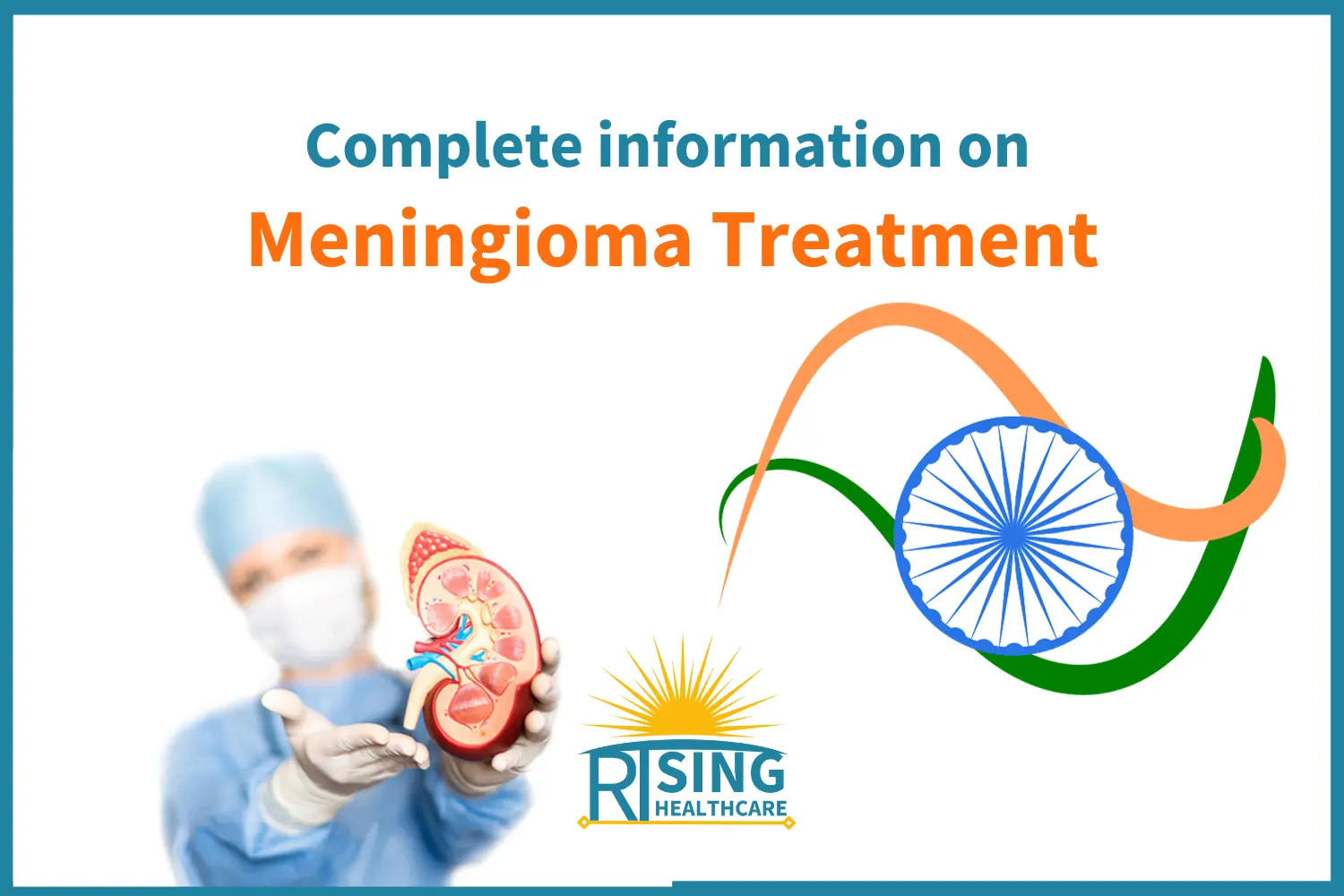
Meningioma Treatment: Hope for Recovery
Introduction
Meningioma is a type of brain tumor that can be a source of anxiety and concern for those who receive the diagnosis. However, it’s essential to understand that meningiomas are treatable, and there is hope for recovery. In this article, we will explore the various aspects of meningioma treatment in simple language, focusing on the keywords “meningioma curable,” “meningioma treatment,” and “meningioma therapy.” We’ll walk you through the available treatment options, their effectiveness, and what you can expect during your meningioma treatment journey.
Understanding Meningioma
Before delving into treatment options, let’s briefly understand what meningioma is. Meningiomas are tumors that develop in the meninges, the protective layers of tissue surrounding the brain and spinal cord. While they are typically non-cancerous (benign), meningiomas can still cause health issues because of their location. The symptoms and severity of meningiomas vary, depending on their size and location within the brain.
Meningioma Curable
One of the first questions that patients and their families often ask when facing a meningioma diagnosis is whether meningioma is curable. The good news is that many meningiomas are indeed curable, especially when diagnosed and treated promptly.
- Surgery: Surgical removal of the tumor is the primary treatment for meningiomas. The success of surgery depends on several factors, including the tumor’s size, location, and the surgeon’s skill. Small and accessible meningiomas are more likely to be completely removed, resulting in a cure. However, even in cases where complete removal is not possible, surgery can significantly reduce the tumor’s size and relieve symptoms.
- Radiation Therapy: In some cases, meningiomas may not be suitable for surgery due to their location or the patient’s health. In such situations, radiation therapy, such as stereotactic radiosurgery or fractionated radiation therapy, can be used. These techniques deliver targeted radiation to the tumor, slowing its growth and potentially shrinking it over time.
- Regular Monitoring: For small, asymptomatic meningiomas, a “watch and wait” approach may be taken. In such cases, the tumor is regularly monitored through imaging tests like MRI or CT scans. If the tumor remains stable and does not cause symptoms, treatment may not be necessary.
Meningioma Treatment
Now that we know that meningiomas can be curable, let’s explore the various treatment options available for patients.
- Surgery: As mentioned earlier, surgery is the primary treatment for meningiomas. During surgery, a neurosurgeon removes the tumor while aiming to preserve as much healthy brain tissue as possible. Advances in surgical techniques, such as neuro-navigation and intraoperative imaging, have improved the precision and safety of meningioma surgery.
- Radiation Therapy: Radiation therapy, including stereotactic radiosurgery and fractionated radiation therapy, is an effective treatment option for meningiomas. It can be used as the primary treatment for inoperable or residual tumors or as adjuvant therapy after surgery to target any remaining tumor cells.
- Medication: In some cases, particularly when surgery and radiation are not viable options, medication may be prescribed to manage symptoms or slow tumor growth. Medications such as octreotide or mifepristone can be used to control hormone-secreting meningiomas.
- Clinical Trials: Medical research continually advances our understanding of meningioma treatment. Patients with challenging cases or those seeking alternative treatments may consider participating in clinical trials, which explore new therapies and treatment approaches.
Meningioma Therapy
Meningioma therapy encompasses the various strategies and approaches used to treat meningiomas effectively. Let’s delve deeper into these therapies and their impact on patients’ lives.
- Surgical Therapy: Surgery remains the gold standard for meningioma treatment. The type of surgical therapy chosen depends on the tumor’s location, size, and accessibility. Minimally invasive techniques, such as endoscopic surgery, may be utilized when appropriate, reducing recovery time and complications.
- Radiation Therapy as Therapy: Radiation therapy plays a significant role in treating meningiomas, either as the primary therapy or as an adjunct to surgery. It’s a non-invasive approach that precisely targets tumor cells while sparing healthy tissue. Patients receiving radiation therapy typically undergo a series of sessions over a few weeks.
- Medication Therapy: Medication therapy is primarily used for symptom management and may include drugs to control pain, seizures, or hormonal imbalances caused by the tumor. While medications may not cure meningiomas, they can significantly improve a patient’s quality of life.
- Rehabilitation Therapy: After surgery or radiation therapy, some patients may require rehabilitation to regain lost functions or adapt to changes in their abilities. This therapy may involve physical therapy, occupational therapy, or speech therapy, depending on the individual’s needs.
- Psychological Therapy: A meningioma diagnosis can be emotionally challenging for patients and their families. Psychological therapy, such as counseling or support groups, can provide invaluable support in coping with the emotional and psychological aspects of living with a brain tumor.
The Importance of Early Detection
Early detection of meningiomas plays a critical role in their successful treatment. Regular check-ups and seeking medical attention when experiencing unusual symptoms, such as persistent headaches, vision changes, or neurological deficits, can lead to early diagnosis and intervention. The sooner meningiomas are identified, the more treatment options are available, and the better the chances of a successful outcome.
Support and Coping Strategies
Receiving a meningioma diagnosis can be overwhelming, and the treatment journey can be challenging. It’s essential for patients and their loved ones to seek support and adopt coping strategies to navigate this difficult time successfully.
- Family and Friends: Lean on your support network of family and friends. They can provide emotional support, accompany you to medical appointments, and assist with daily tasks during recovery.
- Healthcare Team: Establish open communication with your healthcare team. Ask questions, express concerns, and seek clarification about your treatment plan and prognosis. They are there to guide you through the process.
- Support Groups: Joining a support group for brain tumor patients or meningioma-specific groups can connect you with others who are going through similar experiences. Sharing your journey and hearing from others can provide a sense of belonging and understanding.
- Self-Care: Prioritize self-care by getting enough rest, eating a balanced diet, and engaging in gentle physical activity when possible. Manage stress through relaxation techniques like deep breathing, meditation, or yoga.
- Stay Informed: Educate yourself about meningioma, its treatment options, and potential side effects. Knowledge can empower you to make informed decisions and reduce anxiety.
Conclusion
In conclusion, meningioma is a treatable condition, and many patients can achieve successful outcomes with the right treatment approach. Surgery, radiation therapy, medication, and supportive therapies all play essential roles in managing and potentially curing meningiomas. Early detection and a proactive attitude toward treatment are crucial for the best possible outcome.
Remember that each meningioma case is unique, and treatment plans should be tailored to individual needs. Consult with a neurosurgeon and a multidisciplinary team of healthcare professionals to determine the most suitable treatment path for your specific situation. With the right care, support, and determination, there is hope for recovery and a fulfilling life beyond meningioma.

